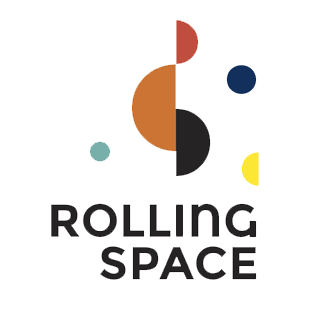It's the year of our Lord two thousand and nineteen, and no technology trend with its subcategories is as flooded with buzzwords as the Internet of Things*. Buzzwords are awesome and not so awesome at the same time. You can really annoy people with them, but you need to understand them first. Here I take a quick look at one of them: Distributed Ledger Technology.
Paessler (of which Rolling Space is a representative) is a German company and when we discover interesting application cases or concepts of IoT from Germany, we are all the more enthusiastic. The two corporations mentioned here are real heavyweights, namely Siemens and Bosch.
Park Your Car
Together, both companies are driving forward a special IoT application. The project involves an intelligent park management system based on blockchain technology that will make parking much easier in the future. The vehicle communicates directly with surrounding parking facilities and negotiates the best conditions. As soon as the driver gets past the selected parking barrier, the vehicle identifies itself at the barrier and it opens without the driver having to draw a ticket. When the vehicle leaves the barrier, the driver is also immediately given a quick go, as the vehicle has already communicated with the barrier and paid the parking fee using a virtual wallet. Drivers will no longer be required to have small change ready to pay and can't possibly lose their parking ticket.
A key concept here are Distributed Ledger Technologies.
Wait... What? 😵
The term Distributed Ledger Technology (DLT) describes a technique used to document transactions.
💻 In contrast to the more classical approach, where a general ledger is managed by only one instance, any number of basically identical copies of the ledger are maintained de-centrally by different parties.
📡 Appropriate measures are taken to ensure that new transactions to be added are transferred to all copies of the ledger and that an agreement is reached on the current status.
🖧 Even if a distributed ledger could in principle be implemented differently, this technology has only become practicable through the use of networked computers. The blockchain is one of the best known DLTs.
* As you can see from the definition, DLT and IoT are not exclusively related. However, over 90% of the cases in which you read about DLT today are at least partly connected to the Internet of Things.
So the core of DLT is decentralized structures: Data is not stored in data centers of a few platform providers, but distributed over a large number of different servers.
👍 The concrete benefits you, me, and the world: We are not dependent on a few large Internet platforms. And decentralized platforms operated by an ecosystem of a large number of equal partners are more secure against attacks from outside (at least in theory).
Charge Your Car
DLTs are of strategic interest to Bosch because the company believes they will enable the Economy of Things. In the area of mobility, this could help with everyday processes such as parking spaces, toll charges, and charging electric vehicles.
Wait... What? 😵
🌍 The Internet of Things is gradually developing into a comprehensive Economy of Things. Thanks to the IoT, physical assets are turning into participants in global digital markets. The countless types of assets around us will become as easily indexed and traded as any online commodity.
🏭 While some industries will be tougher to transform than others, untold economic opportunities exist for growth and advancement.
Together with the energy utility EnBW, Bosch is working on a prototype to improve the charging process of electric cars. The entire charging process - from the selection of the charging station to reservation and payment - is to be significantly simplified and tailored precisely to the customer's needs. The software developed by Bosch for cars in combination with an intelligent charging station manager could offer customers different and transparent price models in real time - depending on the availability of charging stations and electricity from renewable sources. Reservation and payment of the charging process are also fully automated via the blockchain.
According to Bosch, the first tests of this new system are currently underway.
Source: paessler.com

